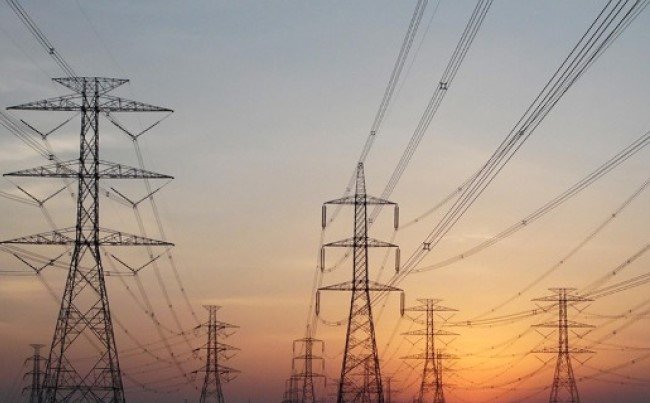Riyadh’s patience wears thin as diplomatic pressure mounts over stalled resolution in Karachi power firm row
Saudi Arabia has sent a pointed message to Pakistan: fix the Al-Jomaih issue in K-Electric—or risk broader damage to future investments. The warning, communicated via diplomatic backchannels and official meetings, underscores Riyadh’s growing frustration with Islamabad’s inability to resolve a commercial dispute that’s been festering for months.
According to people familiar with the matter, Saudi officials are especially irked because Prime Minister Shehbaz Sharif himself had pledged to resolve the matter last October. Nearly nine months later, the impasse continues.
Backlash from Riyadh over ‘unfulfilled assurances’
Saudi officials have let it be known they are not pleased. On June 24, Pakistan’s ambassador in Riyadh met with Saudi Assistant Minister of Investment, Ibrahim Al-Mubarak, in a follow-up to a virtual dialogue on June 16. The message was crystal clear: the delays are damaging trust.
The tone was sharper than usual, say Pakistani officials with knowledge of the meeting. Al-Mubarak didn’t mince words, pointing out that Al-Jomaih’s ongoing troubles with its K-Electric investment were souring sentiment in the broader Saudi investment community.
One diplomat put it bluntly: “They feel misled. They were promised resolution and all they’ve seen is stalling.”

The roots of the rift: a corporate dispute, turned diplomatic flashpoint
K-Electric, Karachi’s main electricity provider, is owned by a consortium that includes Saudi Arabia’s Al-Jomaih Group. That ownership has become entangled in regulatory and legal wrangling inside Pakistan—delays in approvals, lack of regulatory clarity, and disagreement between shareholders.
Al-Jomaih believes its concerns have not been taken seriously enough by Islamabad. And now, with a diplomatic push underway, they’re not the only ones applying pressure.
Here’s what’s at stake for Pakistan:
-
Future Saudi investments may be paused or diverted elsewhere.
-
Insurance costs for cross-border projects could spike.
-
Investment returns could drop due to heightened risk perceptions.
Business diplomacy under strain: MoUs wobble amid investor anxiety
Al-Mubarak reportedly told Pakistani officials that 34 business-to-business memoranda of understanding (MoUs) signed in October 2024 between Saudi and Pakistani firms were now under a cloud. Several are being re-evaluated, he said, because of the bad aftertaste left by the K-Electric imbroglio.
That includes deals in energy, infrastructure, logistics, and food processing. While none have been canceled outright yet, insiders say Saudi companies are holding back further engagement until there’s clarity on Al-Jomaih’s fate.
“There’s nervousness, no doubt,” said a senior Pakistani official involved in Saudi relations. “We promised reform, transparency, fast-tracking. But if we can’t fix a flagship case like Al-Jomaih’s, what message does that send?”
SIFC under pressure to fix what it promised to deliver
The Special Investment Facilitation Council (SIFC)—a civilian-military body created to streamline foreign investment into Pakistan—had pledged fast-track resolution of commercial disputes. But so far, it hasn’t delivered on Al-Jomaih.
PM Sharif personally assured Al-Jomaih executives in October 2024 that their concerns would be addressed “within a month.” That commitment has come back to haunt his government.
By now, Saudi officials have raised the matter at multiple levels. First in private. Then in formal letters. Now, in increasingly direct public diplomacy.
“This is not about one company anymore,” a Pakistani official said. “This has become a litmus test for our credibility.”
Riyadh’s red line: damage to reputation and risk profile
What really has Saudi Arabia riled up isn’t just the unresolved corporate dispute—it’s the reputational risk. Al-Mubarak reportedly told Pakistan’s envoy that the perception of legal and regulatory uncertainty is hurting the country’s investment image.
He warned that if high-profile investors like Al-Jomaih aren’t protected, others will walk away. Worse, it could hike up Pakistan’s risk premiums and even raise political risk insurance costs.
That, in turn, would make the cost of doing business in Pakistan more expensive—just as the country is trying to attract more Gulf and BRICS capital to revive its economy.
Pakistan’s options are narrowing—and Riyadh is watching
Time is ticking. Officials say Islamabad is scrambling behind the scenes to offer solutions, including potential legal frameworks or compensation mechanisms to resolve Al-Jomaih’s complaints.
But there’s growing skepticism that anything short of a concrete settlement will satisfy the Saudis.
One senior energy bureaucrat summed it up this way: “This has gone from technical to political. And once that happens, delays get expensive.”
